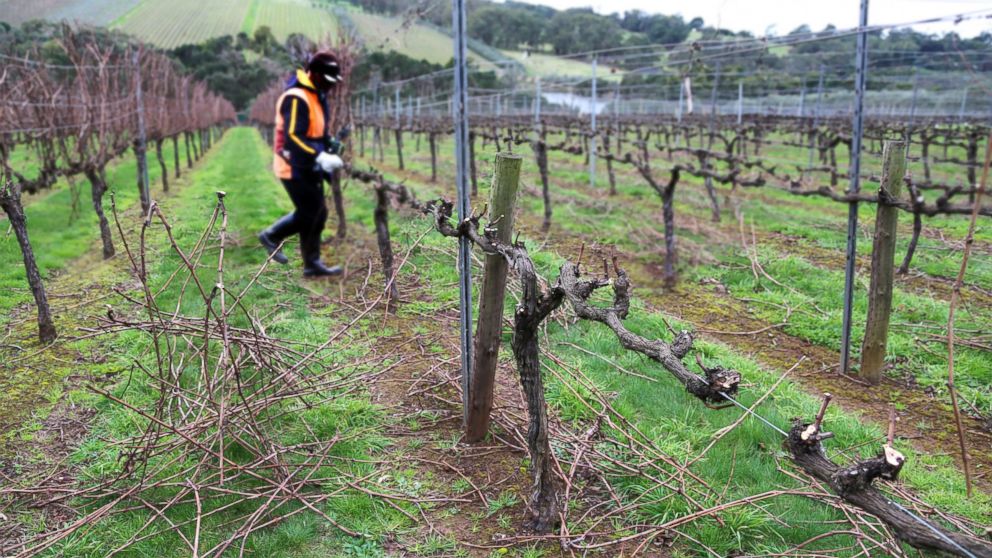Oenophile Alert: Wine Shortage Looms
World wine production is said to have fallen behind demand.

Oct. 30, 2013 -- The world is running short of wine, says Morgan Stanley. Is it also running out of corks?
A report released by the Australian Consumer and Beverage branch of Morgan Stanley earlier this month says that the world has gone from a wine surplus of more than 600 million unit cases in 2004 to near parity, now, of supply and demand. That elimination of the surplus, according to the report, has been the result of "an ongoing structural reduction in capacity."
Italy looks abroad for wine sales
Wine author Alice Feiring tells ABC News that the surplus, amounting to a virtual lake of wine, depressed prices and prompted European governments to offer growers incentives to reduce production.
Vineyards in France, Spain and Italy were plowed under, she says, and housing sprouted where grapes had once grown. But since then, world demand for wine has increased. That, plus bad weather, has led to the present situation. After adjusting for non-wine uses (such as production of vermouth), says Morgan Stanley, worldwide demand now exceeds supply by 300 million cases: the biggest shortfall in the past 40 years.
The authors of the report predict that wine prices will rise globally in coming years. Net exporters, they say, including Australia, Chile, Argentina, South Africa and New Zealand stand to benefit the most. The French, say the authors, remain the largest consumers of wine, but the U.S. has become a close second. The U.S. and China are the main drivers of consumption growth globally, they write.
Feiring, publisher of The Feiring Line newsletter, says there's still plenty of vineyard space to satisfy world demand for wine. "The problem," she says, "will be the fine wine market." People looking for the better Burgundies and Bordeaux and wines from the Loire, for example, will find them in shorter supply and priced higher. The supply of lower-quality wines, she says, will not be affected. Says Feiring, "Nobody has to worry there won't be enough crap."
In Photos: Would You Drink 205-Year Old Wine? Napoleonic-Era Wine For Sale
As for corks: Is there a corresponding shortage?
Wine drinkers might think so, since natural cork now accounts for fewer bottle closures, says Feiring. The reason, though, has less to do with any shortage of the natural product than with vintners' efforts to cut costs and wine buyers' reluctance to risk cork "taint."
Secret life of a female wine drinker
Until recently, spoilage of wine caused by cork bacteria used to be a common problem, says Feiring. Up to one bottle in every seven was affected, due to lax processing of the bark from which corks are made. Producers have now cleaned up their act, she says. Most bottle of fine wine—"wines for laying down," she says--still use natural cork. Producers of cheaper wine, however, increasingly opt for less expensive screw-tops or other artificial closures, including plastic corks.




